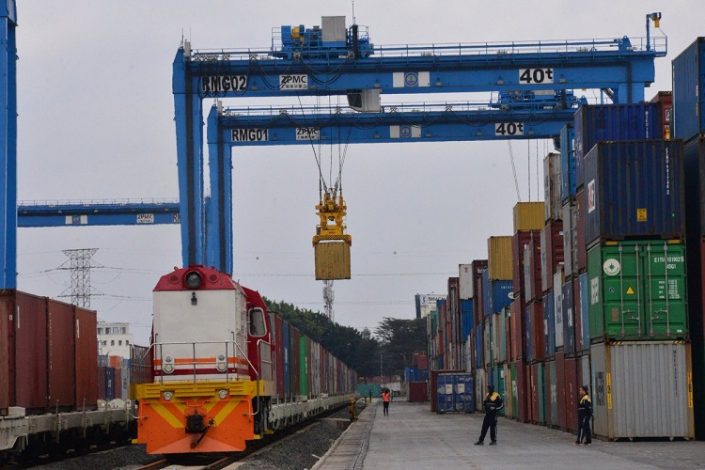Fuel prices are beginning to relax after the Energy Regulatory Commission (ERC) revised down the cost per litre of petrol and diesel by Ksh 4.57 and KSh0.55 respectively due to lower crude costs in November.
“The changes in this month’s prices have been as a consequence of the average landed cost of imported super petrol decreasing by 8.46 percent from $758.34 per in October 2018 to $ 694.18 per ton in November 2018,” ERC director-general Pavel Oimeke said in a statement on Friday.
nder the new price review, which took effect December 15, until January 14, a litre of petrol will now retail at KSh110.91 in Mombasa, diesel (KSh109.66) and kerosene (KSh102.60).
In Nairobi fuel will cost Ksh113.54 for a litre of super petrol and Ksh112.28 for diesel.
In Nakuru, a litre of super petrol will cost KSh114.02, diesel and kerosene at KSh112.96 and KSh105.92 respectively.
In Kisumu, petrol at KSh115.01 diesel KSh113.95 and Kerosene at KSh106.91.
In Eldoret, petrol will be KSh115.02, diesel KSh113.96 and kerosene will retail at Ksh106.91.
According to Commercial Bank of Africa Analysts, oil prices recently hit 12-month lows weighed down by surging supply amidst fears that an economic downturn in late 2019 will erode fuel demand.
“The US decision to exclude eight countries from the embargo on supplies from Iran also fueled the sharp decline in prices. Brent crude prices dropped about 30% in late November to trade at $60/barrel following massive liquidation of long oil positions due to the aforementioned concerns.”
Inflation is forecast to be anchored attributed to the “discipline from OPEC members will be crucial in keeping prices anchored.”
Faith Atiti and Stephanie Kimani, CBA Analysts state “For now, low oil prices could help keep global inflation contained, complicating major central banks’ ambition to normalize monetary policies. On a positive note, delayed monetary stimulus withdrawal could provide some respite for emerging markets.”
In Kenya Consumer Prices Index (CPI) in November 2018 was 1.72%. However, the core inflation edged higher in November to 5.8% from October’s 5.5% due to an increase in the pump prices of petrol and public transport fares.
The Central Bank of Kenya (CBK) has maintained that the headline inflation will remain within the 2.50% – 7.50% target band.
In November, the shilling lost 0.5% to the US dollar to trade at 102.50 levels in November. “On a brighter note, the drop in oil prices could provide a much welcome relief for the currency although fragile sentiment due to persistent fiscal concerns may still be a headwind,” CBA says.
Read: Why the Kenyan Shilling is stronger besides uncertainties – Analysts




